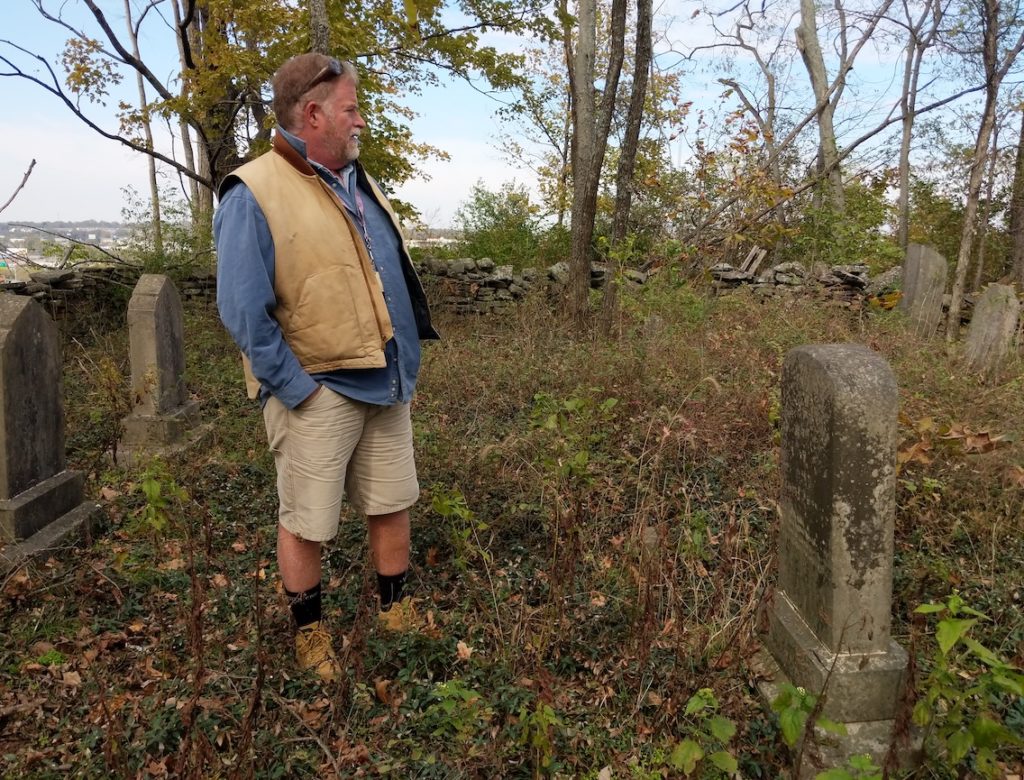
As construction spreads to more rural parts of Davidson County, that’s bringing more developers face to face with cemeteries.
In fact, there are nearly 500 historic graveyards scattered throughout the city. Curious Nashville listener Jill Anderson came across one on her commute — on top of a hill off I-24’s Hickory Hollow exit:
What’s up with that old, walled-in cemetery? It’s been hidden for ages by all the trees they’ve now clear-cut to make way for the new exit. What’s going to happen to it?
Anderson, an English professor at Tennessee State University, admits she’s drawn to where the dead are.
“I’m the person who will slam my brakes and turn around if I see a tiny, little cemetery, so I always have my eye out,” she says.
This one in Antioch is home to 25 tombstones for the Foster and Owens families, dating back to 1851.
“It was an active cemetery as late as 1975,” says Fred Zahn, a preservationist with the Metro Historical Commission.
Zahn’s office is tasked with keeping track of information on historic gravesites around Nashville. Many are family burial grounds on parcels of land that are now being developed. So far, the commission is aware of 478 cemeteries, but the number keeps growing.
“We regularly receive reports of re-found cemeteries that were previously unknown or that had just been lost to time,” Zahn says.
Compared to others, the Foster-Owens cemetery is in a pretty good location. Sure, it’s a bit noisy — there’s road construction on one side and an interstate on the other — but it’s protected by a stone wall and located at the very top of the hill, where construction is unlikely to take place.
Plus, because it’s next to an interstate, the state owns this land. A TDOT spokeswoman says the agency always tries to work around historic sites, including graves. In this case, it will keep the Foster-Owens cemetery where it is and even add an access road.
Regardless of location, Tennessee law tries to dissuade people who would “willfully destroy, deface, or injure” a gravesite, classifying such a crime as a felony. It spells out a detailed process for relocating the dead.
But family cemeteries are still vulnerable. A few years ago, business owners in South Nashville were accused of illegally moving nearby graves. And this year, construction crews bulldozed part of a cemetery in Murfreesboro, claiming it was an accident.
“The minute you think something is completely isolated and completely safe and completely protected, something happens that you never conceived of,” Zahn says.
He says he recently warned a developer who’s considering blasting on the side of a hill along Dickerson Pike, where people are buried on the top: “If anybody goes sliding out of the hillside, first of all, they’re not going to appreciate it, and second of all, you’re going to be putting them back.”
In general, developers want to respect these sites, Zahn says. But they have to be willing to make space for the old among the new.


